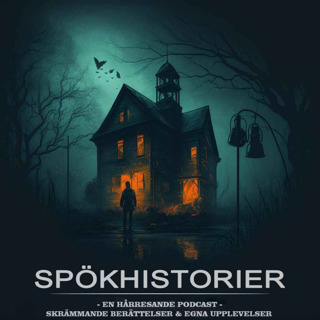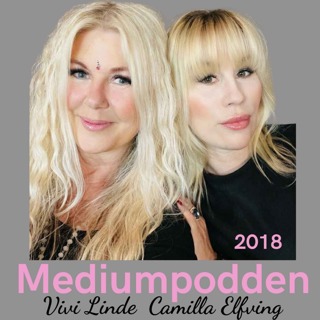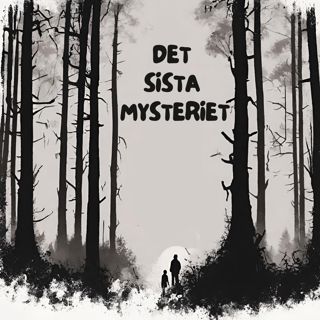
#014 Sharon Baker: Hell Revisited (Razing Hell, Executing God)
The idea of hell has haunted millions of people all over the world, and continues to do so. But ... what if the fiery image of an eternal torture chamber, which many religious people have been taught, isn't true? In this episode, I interview Sharon Baker. She's an associate professor of theology and religion, and has written numerous articles on hell and nonviolent atonement. Sharon is the author of Razing Hell and Executing God. IN THIS EPISODE, SHARON ANSWERS THE FOLLOWING: • When was the first time you found out you were going to hell? • Is the idea of hell found in the Bible? • Did any formal doctrine of hell exist in the early church? • Where does the imagery of hell (fire, torture, screaming) come from? Did it develop over time? • What does "fire" symbolize in the Bible? • Doesn't the Bible clearly teach ETERNAL punishment? • Doesn't the word "eternal" mean forever? • Didn't Jesus talk about hell more than heaven? • Can there be a connection between a person's understanding of the cross with hell? • Did Jesus die to save people from hell? • Why do so many Christians want to believe in hell? • What does a person's belief in eternal hell say about the kind of God they believe in? • What about people like Hitler and Osama Bin Laden? Don't they “deserve” an eternal hell? • Can you go through some of the problems ("troubles") surrounding the traditional view of hell? • Does an eternal hell really solve the problem of evil? • Respond to this: "God is love, but don't forget that he's also a God of wrath." • Respond to this: "God can send anyone to hell because everything God does is just and loving." • Respond to this: "It doesn't matter how small your "sin" is, it's who (God) you're sinning against." • Respond to this: “God sends nobody to hell. People send themselves there.” • What about the verse, "It's appointed for a person to die once and then face judgment"? • Doesn't God allow people to suffer in hell so he won't violate their free will? SUPPORT THIS PODCAST TO HELP KEEP IT RUNNING! • Please Support This Podcast by Making a Donation (any amount helps!) LINKS AND RESOURCES MENTIONED IN THIS EPISODE • Razing Hell book • Executing God book • Sharon on Facebook
6 Dec 201557min

#013 Nadia Khalil Bradley: Jesus Christ Appears and Speaks to a Muslim Woman
If Christ appeared to you out of nowhere, what would you do? In this episode, I interview Nadia Khalil Bradley. Nadia began her journey in a tight-knit Palestinian-American community located in a suburb of Chicago. A devout Muslim, she followed the traditions upheld in the community and within the culture, having very little knowledge of Christ. She had been writing to God for years, until one day, he answered her. In 2002, while still a Muslim, Nadia had a vision of Christ that literally changed her life forever. Since then, she has been sharing her experiences and insights through her writing (3 books so far) and podcast show (Christisms). Her books include Little Wing, Origins of Truth, and her latest, Original Love. IN THIS EPISODE, NADIA ANSWERS THE FOLLOWING: • What did Christ look like? Was he a ghostly figure? Floating in mid-air? • What were you feeling at that moment when you saw Christ face to face? • How has this experience changed your life? • What did Christ sound like? Was it a voice in your head? A "knowing"? Audible? • So how do you know it's Christ you're hearing and not just your ego? • Why did Christ reveal himself to you this way? Are you special? • What is the main message Christ came to bring you? • What were some of the questions Christ asked you? • Do you still hear Christ today the same way you heard him the first time? • Do you still see Christ in a physical form? • When you pray, do you make a distinction between God and Christ? • Who is Christ to you? God? A messenger? • Do you still consider yourself a Muslim? Or did you become a Christian? • How do you know there is no hell? • How do you handle the skeptics? • Some Christians say your experience was demonic. What is your response? • Has this experience affected your relationships with friends and family? • What are some truths you've learned throughout the years? SUPPORT THIS PODCAST TO HELP KEEP IT RUNNING! • Please Support This Podcast by Making a Donation (any amount helps!) LINKS AND RESOURCES MENTIONED IN THIS EPISODE • Christisms Podcast • Nadia’s new book Original Love • Nadia on Youtube • Nadia on Facebook • Nadia on Twitter • Nadia on Instagram
8 Nov 20151h 2min

#012 Brad Jersak: Asking the Toughest Questions About God and Jesus (A More Christlike God)
What are some of the toughest questions you have ever asked about God and Jesus? You see, if you grew up in the church like me, chances are, at some point in your life, you started asking some difficult questions about God that your friends and family couldn't answer to your satisfaction. Did it matter? Well, maybe. Here's the thing: questions have the capacity to strengthen your faith, or possibly even destroy it. In this episode, I interview Brad Jersak. Brad is an author and teacher based in Abbotsford, BC. He's on faculty at Westminster Theological Centre (Cheltenham, UK), where he teaches New Testament and Patristics. He serves as adjunct faculty with St. Stephen's University (St. Stephen, NB). And he's also the senior editor of the CWR (Christianity Without the Religion) Magazine, which is based in Pasadena, CA. Some of his books include Can You Hear Me?, Her Gates Will Never Be Shut, and A More Christlike God. IN THIS EPISODE, BRAD ANSWERS THE FOLLOWING: • Can you tell us a little bit about A More Christlike God and why you wrote it? • Is there such a thing as "the God of the Bible"? • Is it possible that we find the kind of God we want to find in the Bible (God of peace/grace/anger/war)? • Humans have produced a vast pantheon of gods, how do we know what God is like? • There seems to be as many versions of God as there are people. How is your God the right one? • Are our ideas of God simply glorified projections of ourselves? • Walter Wink said, "atheism is the first step toward true worship." What exactly does that mean? • In your opinion, what are some of the false images of God? • Why does the "God of the Bible" seem so un-Christlike? • Why did it take so long for God to reveal himself perfectly in Jesus? • Mark Driscoll said he can't worship a Jesus he can beat up. What is your response? • How do we know your understanding of Jesus isn't just an upgraded version of yourself? • Did God punish Jesus for our sins on the cross? • What does the cross demonstrate about the nature of God? • How is the cross a response to the problem of suffering? • Who or what is Jesus saving us from? • In what sense do you believe Jesus died for us? • Can Jesus truly identify with a person who has been married, divorced, molested, or raped? • Isn't it arrogant to talk about God's nature? Who are we to say? • Is God free to do whatever he pleases (even things considered to be evil in our eyes)? • Why is God so violent? Didn't he even command genocide in the Bible? • Does God have a dark and wrathful side that balances out his goodness and love? • If God is in control, then why is there so much chaos in this world? • If God is such a loving Father, then why is there so much suffering? • Why doesn't God protect us from natural disasters? • Desmond Tutu says that "God does nothing without a human partner"? Do you agree? • You say that God operates in the world by consent. What do you mean by that? • According to you, what is "The Beautiful Gospel"? • What is "The Gospel in Chairs"? • Hector Avalos argues, in The Bad Jesus, that Jesus is flawed. What is your response? SUPPORT THIS PODCAST TO HELP KEEP IT RUNNING! • Please Support This Podcast by Making a Donation (any amount helps!)LINKS AND RESOURCES MENTIONED IN THIS EPISODE • bradjersak.com • Brad's new book More Christlike God • Brad Jersak on Youtube • Brad Jersak on Facebook • Brad Jersak on Twitter • Brad Jersak on Instagram • Clarion Journal of Spirituality and Justice
1 Nov 20151h 9min

#011 Wm. Paul Young: The Problem of Suffering and the Goodness of God (The Shack, Cross Roads, Eve)
Why does a GOOD God allow evil and suffering? In 2007, an unknown author's book was published, and it was like a bomb exploded in the Christian world. Not only did many well-known representatives of the faith embrace the content of the book, there were many others who vehemently criticized it as well, labeling it as heresy. And boy, did it create a conversation (or should I say many conversations!). In this episode, I interview Wm. Paul Young. Paul was born a Canadian and raised among a stone-age tribe by his missionary parents in the highlands of Netherlands New Guinea. He is best known for his highly-praised and controversial book The Shack which has sold over 20 million copies to date. Since the success of his first publication, he has written two more books, one being Cross Roads, and most recently, Eve. IN THIS EPISODE, PAUL ANSWERS THE FOLLOWING: • Why did The Shack receive so much attention? • Within Christianity, God is known as a loving Father. Why didn't you portray God in a masculine form? • Why is it so hard for many religious folks to accept the idea that God loves unconditionally? • Is the God of The Shack too nice where "He" no longer matches the God of the Bible (especially the OT)? • Why does a good God allow suffering? • It seems like "God allows" EVERYTHING to happen. So is God even necessary? • Does saying things like "God was with you during those horrible times" do more harm than good? • In The Shack, what did Jesus mean when he said "I will travel any road to find you”? • Does it matter what a person believes? • What are some of the themes found in Eve? • How is Eve different from your other two books? And what did you want people to take away from it? • Why was Eve was your most difficult book to write? • I heard The Shack is gonna be a movie. Can you tell us more about that? Who'll be starring in it? • Is there a book tour for Eve? SUPPORT THIS PODCAST TO HELP KEEP IT RUNNING! • Please Support This Podcast by Making a Donation (any amount helps!) LINKS AND RESOURCES MENTIONED IN THIS EPISODE • wmpaulyoung.com • Eve (FREE AUDIOBOOK w/ 30-day trial membership on Audible [type title in search]) • Paul Young on Youtube • Paul Young on Facebook • Paul Young on Twitter
25 Okt 20151h 10min

#010 Peter Enns: Why Defending the Bible Does More Harm Than Good (The Bible Tells Me So)
Has defending the Bible made us unable to read it? What if the Bible isn't meant to be protected and defended? With all the messy, troubling, and weird things found in this ancient book, what if trying to make it behave itself can become a barrier to true faith? In this episode, I interview Dr. Peter Enns. He's a biblical scholar, theologian, writer and jokester. He's a contributor to the Huffington Post and Patheos. His books include Inspiration and Incarnation, The Evolution of Adam (where he questions the belief that Adam was a historical figure), and The Bible Tells Me So. IN THIS EPISODE, PETER ANSWERS THE FOLLOWING: • Where did your desire to study the Bible come from? When did it happen? • Why is there a lot of fear among Christians to share their honest questions about the Bible? • Some claim they became atheists because of the Bible. But if the Bible isn't the problem, what is? • Did your shift in thinking about the Bible affect your faith in God? • If the Bible isn't a step-by-step manual on how to live, then what value does it have for us today? • Christians claim to believe in one God. But does the bible affirm that there's only one God? • If the Bible isn't even clear about big issues like God (!!), should we read the Bible to know God? • What do you say to someone who tries to justify the violence in the Bible? • If some of the stories in the Bible aren't historically accurate, what should our approach be to the text? • How do you feel about Christians apologists defending the Bible? Are they not taking the Bible seriously? • Should we be surprised by the different versions of the same story in the Bible? • Are there any contradictions (not just apparent ones) in the four Gospels? • Do you consider the Bible to be the "Word of God"? If so, in what way? • Can our "sacred experiences" be added to the "Word of God"? • If it's not about historical accuracy, what about other religious books, such as the Koran? • How did Jesus read his Bible? Did he follow it like a rule book? SUPPORT THIS PODCAST TO HELP KEEP IT RUNNING! • Please Support This Podcast by Making a Donation (any amount helps!) LINKS AND RESOURCES MENTIONED IN THIS EPISODE • peteenns.com • Peter Enns on Patheos • The Bible Tells Me So (FREE AUDIOBOOK download on Audible [type title in search]) • Peter Enns on Facebook • Peter Enns on Twitter
29 Sep 20151h 1min

#009 David Hayward (Naked Pastor): Are Questions the Answer?
Are questions the answer? Well, many who left organized religion--those who are tired of trite answers--seem to think so. In this episode, I interview David Hayward (aka Naked Pastor). He is one of the most prolific cartoonists of the online world--describing himself as "a graffiti artist on the walls of religion." He's the author of books such as Without a Vision My People Prosper, The Liberation of Sophia, and his latest one, Questions Are the Answers. He also launched an online community called The Lasting Supper where people can learn and live in spiritual independence. IN THIS EPISODE, DAVID ANSWERS THE FOLLOWING: • How did you end up being called "Naked Pastor"? • When did you get into drawing? • Is there a tension between "intellectual integrity" and "just believing"? • What good can questions do for a person that "answers" can't? • What were the "3 stages of questions" you went through? • When was your first "crisis of faith" experience? • At one point you entered a "dark period" in life. What was going on? • How did your encounter with a street person dramatically impact you? • Tell us more about what your wife calls your "Gandhi phase." • How can theology hurt people? • When you were pastoring, what did your services look like? • What advice would you give to pastors who are facing a theological crisis? • When did you realize you were finally done with it all (ministry, attending church)? • Is it possible to criticize the church and still love it? • You had a dream where you heard the words "It's time!" What happened? • What is The Lasting Supper community? SUPPORT THIS PODCAST TO HELP KEEP IT RUNNING! • Please Support This Podcast by Making a Donation (any amount helps!) LINKS AND RESOURCES MENTIONED IN THIS EPISODE • nakedpastor.com • thelastingsupper.com • David's new book Questions Are the Answer book • nakedpastor on Facebook • nakedpastor on Instagram • nakedpastor on Youtube
22 Sep 20151h 15min

#008 Kevin Miller: Hellbound? (Does Hell Exist? If So, Who Ends Up There, And Why?)
Does hell exist? If so, how can a loving God allow millions of people to suffer in a place of eternal conscious torment? In this episode, I interview award-winning screenwriter, director and producer, Kevin Miller. And we discuss his provocative, critically acclaimed documentary Hellbound? which, in Kevin’s words, “seeks to discover why we are so bound to the idea of hell and what our views on hell reveal about how we perceive God, justice, the Bible and, ultimately, ourselves.” IN THIS EPISODE, KEVIN ANSWERS THE FOLLOWING: • Why do so many loving Christians still believe in hell? • When did you start questioning hell? • I once heard you say that the “belief in hell creates hell.” What did you mean? • Where does the imagery of hell (fire, darkness, torture) come from? • If someone believes in the Christian God, does he or she have to believe in hell, too? • Is hell part of the Christian message? • What did the early church believe about hell? • It’s often said that Jesus spoke more about hell than heaven. Is that true? • Why are so many people afraid to question hell? • Does it makes sense for God to give Hitler a free pass into heaven without any punishment? • Is eternal conscious torment the only view of the afterlife for Christians to hold to? • If there’s no eternal hell, then why the need for a savior? • How did the writers of Scripture know with certainty what happens after we die? • If there were no Bible, would people still believe in hell? • If people really believe in hell, then why aren’t they sharing their faith 24/7 to save people from it? • If we’re all trying to make sense of the world, does the idea of hell really make a good story? • As you toured the film and did Q&A’s, what were some of the responses?LINKS AND RESOURCES MENTIONED IN THIS EPISODE • hellboundthemovie.com • Her Gates Will Never Be Shut by Brad Jersak • Kevin's Patheos Blog • Hellbound? Facebook Page • Hellbound? on Twitter • Please Support This Podcast by Making a Donation (any amount helps!)
20 Sep 20151h 18min

#007 Frank Schaeffer: Why I am an Atheist Who Believes in God
Is it possible to be an atheist and believe in God? Well, Frank Schaeffer seems to thinks so. And the description of his new book, Why I am an Atheist Who Believes in God, gives us a glimpse into this seemingly contradictory reality: Caught between the beauty of his grandchildren and grief over a friend’s death, Frank Schaeffer finds himself simultaneously believing and not believing in God—an atheist who prays. Schaeffer wrestles with faith and disbelief, sharing his innermost thoughts with a lyricism that only great writers of literary nonfiction achieve. Schaeffer writes as an imperfect son, husband and grandfather whose love for his family, art and life trumps the ugly theologies of an angry God and the atheist vision of a cold, meaningless universe. Schaeffer writes that only when we abandon our hunt for certainty do we become free to create beauty, give love and find peace. In this candid interview, Frank pulls no punches and points out what many of us sometimes think and feel--whether we wanna acknowledge it or not. So give yourself a break from trying to believe all the "right" things for a moment, and think about whether or not your beliefs now inspire you to give love, create beauty and find peace. Enjoy the show! IN THIS EPISODE, FRANK ANSWERED THE FOLLOWING: • Isn't calling yourself an "atheist who believes in God" a contradiction? • How has embracing paradox and uncertainty brought healing into your life? • Doesn't certainty give people hope? • Do you pray to a God on some days and live as an atheist on other days? • You feel connected to something bigger than yourself whenever you paint. Would you call that God? • Where do you find meaning? Is meaning something we create ourselves, or something we discover? • Why did you join the Greek Orthodox Church? Do you still go to church? • You talk a lot about your wife. What's her reaction to your theological evolution? LINKS AND RESOURCES MENTIONED IN THIS EPISODE • frankschaeffer.com • frankschaefferart.com • Why I am an Atheist Who Believes in God • Frank's Facebook Page • Frank's Youtube Channel • Frank's Twitter • Frank's Google Talk • FREE AUDIOBOOK download when you try Audible for 30 days • Order Signed Copies of So You Thought You Knew: Letting Go of Religion • Please support this podcast by making a donation at my Patreon page (any amount helps!)
13 Sep 201550min






















